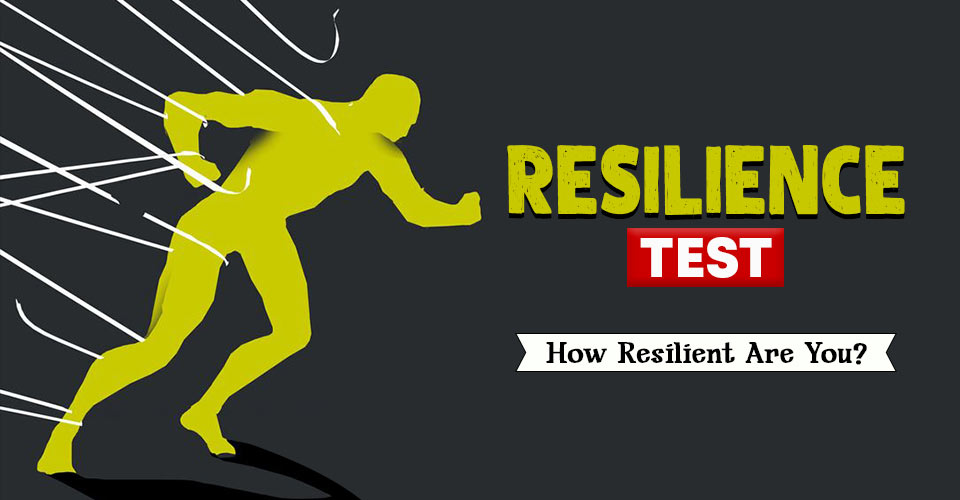 “Resilience is not about avoiding stress, but about learning to thrive in the face of it.”
“Resilience is not about avoiding stress, but about learning to thrive in the face of it.”
Resilience: Your Inner Superhero Cape
Resilience is like having an invisible superhero cape tucked under your everyday outfit. It’s the magical ability to trip, fall flat on your face, and still manage to get up, dust yourself off, and strut away like it was all part of the plan. Imagine you’re a rubber band. Life stretches you, twists you, and sometimes flings you across the room. Resilience is what lets you snap back (and maybe boomerang into someone’s coffee cup, because, hey, life happens).
Resilience doesn’t mean you never break a sweat. It’s more like looking a disaster in the eye and saying, “Challenge accepted.” It’s having a meltdown on Monday but still showing up on Tuesday with your game face and a fresh coffee.
Think of it this way: Resilience is your internal Wi-Fi signal. Sometimes it’s strong, sometimes it’s wobbly, but you can always find a way to reconnect—whether it’s through a pep talk, a good cry, or bribing yourself with pizza.
So next time life throws you a curveball, remember your inner superhero. You’ve got the cape, the comeback moves, and the ability to laugh at the absurdity of it all. That’s resilience—a mix of grit, grace, and a dash of “bring it on!” attitude.
Resilience is the ability to recover from difficulties, adapt to change, and continue moving forward with strength and clarity. It involves maintaining a positive mindset, cultivating emotional flexibility, and using challenges as opportunities for growth. This test will help you assess your current level of resilience and identify areas where you can strengthen your ability to bounce back and thrive.
Instructions:
Rate each statement on a scale of 1 to 5, where:
1 = Strongly Disagree
2 = Disagree
3 = Neutral
4 = Agree
5 = Strongly Agree
SELF-AWARENESS

1. I am able to recognize when I’m feeling stressed or overwhelmed.
2. I understand the root causes of my stress and how it affects my mental and physical health.
3. I regularly reflect on how I respond to challenging situations and look for ways to improve.
4. I notice my emotional triggers and work to manage them effectively.
5. I am in tune with my physical and emotional reactions during stressful times.
Total Self-Awareness Score: ___/25
OPTIMISM
Optimism is the belief that challenges are temporary and that you have the ability to overcome them. Resilient people maintain hope and focus on solutions even in difficult situations.
6. I believe that setbacks are temporary and can be overcome.
7. I focus on solutions, even when faced with significant challenges.
8. I remain hopeful about the future, regardless of present circumstances.
9. I tend to see problems as opportunities for growth, rather than as insurmountable obstacles.
10. I believe in my ability to bounce back after experiencing failure or disappointment.
Total Optimism Score: ___/25
ADAPTABILITY
Adaptability is the ability to adjust to new circumstances, remain flexible in your approach, and shift strategies when necessary. It is a key element of resilience.
11. I am open to change, even when it disrupts my plans.
12. I find it easy to adjust my approach when things don’t go as expected.
13. I am able to let go of rigid plans and embrace new possibilities.
14. I adapt my mindset when faced with challenges, seeing them as opportunities to learn.
15. I am comfortable with ambiguity and uncertainty, and I can find my way even when the path forward is unclear.
Total Adaptability Score: ___/25
SOCIAL SUPPORT
 Having a strong support system is crucial for resilience. Building and maintaining relationships with others provides you with emotional and practical help when you need it most.
Having a strong support system is crucial for resilience. Building and maintaining relationships with others provides you with emotional and practical help when you need it most.
16. I have a strong support network of friends, family, or colleagues to rely on during difficult times.
17. I feel comfortable reaching out to others when I need emotional or practical support.
18. I seek advice or perspective from others when I face challenges.
19. I feel supported by my social network, and I know that I am not alone in my struggles.
20. I am able to offer support to others in times of need, which strengthens my resilience.
Total Social Support Score: ___/25
EMOTIONAL REGULATION
Emotional regulation is the ability to manage your emotions in healthy ways, especially when under stress. It helps you stay calm, clear-headed, and focused during challenging situations.
21. I can stay calm and composed when I encounter stressful situations.
22. When I feel overwhelmed, I have strategies to help me regain control (e.g., deep breathing, grounding exercises).
23. I don’t allow negative emotions to control my behavior or decision-making.
24. I am able to regulate my emotions effectively, even in difficult or high-pressure situations.
25. I can take a step back from my emotions and gain perspective before reacting.
Total Emotional Regulation Score: ___/25
FOCUS ON SOLUTIONS
Resilient individuals focus on finding solutions instead of ruminating on problems. This mindset allows them to remain proactive and take action when faced with challenges.
26. I prefer to focus on finding solutions rather than dwelling on problems.
27. I quickly shift my mindset to a “solution-oriented” approach when encountering obstacles.
28. I believe that every problem has a potential solution, and I focus on uncovering it.
29. I stay engaged in problem-solving, even when solutions are not immediately apparent.
30. I feel empowered when I take proactive steps to address challenges and make progress.
Total Focus on Solutions Score: ___/25
SCORING YOUR RESILIENCE TEST
Add up your scores in each section:
• Self-Awareness Score: ___/25
• Optimism Score: ___/25
• Adaptability Score: ___/25
• Social Support Score: ___/25
• Emotional Regulation Score: ___/25
• Focus on Solutions Score: ___/25
Total Resilience Score: ___/150
INTERPRETING YOUR RESULTS
120–150: Highly Resilient
You possess a high level of resilience and effectively manage stress, adapt to change, and maintain a positive outlook even in the face of adversity. Your ability to bounce back from setbacks and stay focused on solutions is a strength that will continue to serve you in both personal and professional challenges.
90–119: Good Resilience
You are generally resilient, but there may be areas where you could further strengthen your coping strategies. You likely recover from challenges well, but improving your emotional regulation or expanding your support network could enhance your resilience.
60–89: Developing Resilience
Resilience may be an area of growth for you. You may struggle with emotional regulation, maintaining optimism, or adapting to change. Consider focusing on building stronger emotional awareness, seeking support from others, and learning new coping techniques.
Below 60: Needs Improvement
You may face significant challenges in bouncing back from setbacks and managing stress. It’s important to start building your resilience by focusing on improving emotional regulation, increasing your support network, and adopting a solution-focused mindset. Consider seeking guidance through therapy, support groups, or resilience-building practices.
Reflection and Action Plan
 Based on your results, consider the following steps for improvement:
Based on your results, consider the following steps for improvement:
1. What are your strongest areas of resilience?
• Reflect on how you can leverage these strengths to navigate future challenges.
2. Which areas need the most attention?
• Choose one area to focus on for the next month. For example, if emotional regulation is a challenge, set a goal to practice calming techniques like deep breathing or progressive muscle relaxation during stressful moments.
3. What specific actions will you take to improve your resilience?
• Set clear and actionable goals to build resilience. This could include reaching out for social support more often, learning problem-solving techniques, or developing more flexible coping mechanisms.
Remember, resilience is a skill that can be developed through consistent practice. The more you work on strengthening it, the better you’ll be able to navigate life’s challenges with grace and strength.
Excerpt from the book: R.V. LaCroix: Self-Mastery: Unlocking Your True Potential
